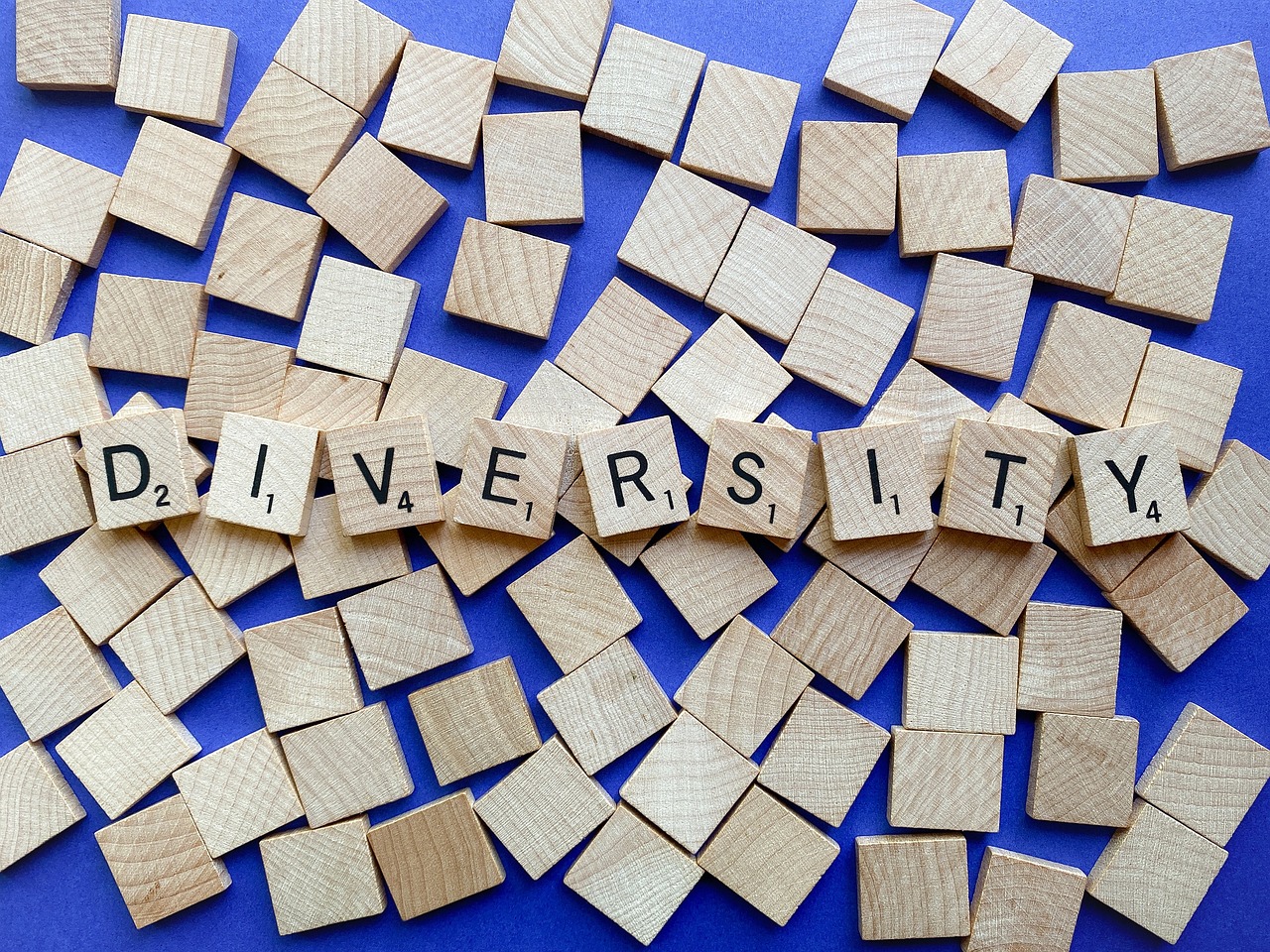The Philosophy and Politics of Race Relations
Race relations are a tapestry woven from threads of history, philosophy, and politics. Understanding this intricate interplay is essential in navigating the complexities of our modern world. The philosophy surrounding race challenges us to think deeply about identity, justice, and the human experience, while the political frameworks we create can either uplift or undermine efforts toward equity and inclusion. In this article, we will embark on a journey through the historical contexts that have shaped our current understanding of race, explore various philosophical perspectives that illuminate the nature of racial identity, and analyze the political ideologies that influence race relations today.
We often hear the phrase, "history repeats itself," and when it comes to race relations, this couldn't be more accurate. The past is not merely a collection of events but a living entity that continues to impact our present and future. From the abolitionist movements of the 19th century to the civil rights battles of the 1960s, each significant event has left an indelible mark on societal attitudes toward race. As we peel back the layers of history, we uncover the struggles, triumphs, and ongoing challenges faced by marginalized communities. This historical context serves as a foundation for understanding contemporary issues, making it essential for anyone engaged in discussions about race.
Moreover, the philosophical perspectives on race offer a rich landscape for exploration. Different theories provide unique lenses through which we can examine the complexities of race and identity. For instance, Critical Race Theory (CRT) disrupts conventional ideas about race and law, urging us to confront uncomfortable truths about systemic inequalities. It posits that race is not just a social construct but also a powerful force that shapes legal systems and societal norms. By diving into CRT, we can better understand how laws have historically marginalized certain groups while privileging others.
Another vital philosophical framework is intersectionality, which looks at how various social identities—such as race, gender, and class—intersect to shape individual experiences. This perspective is crucial for grasping the nuances of privilege and oppression in race relations. It invites us to consider not just race in isolation but as part of a broader web of social identities that influence people's lived experiences. Thus, intersectionality enriches our understanding of how different forms of discrimination can compound and create unique challenges for individuals.
Additionally, postcolonial theory critiques the enduring effects of colonialism on race relations. It emphasizes how historical power dynamics continue to echo in contemporary issues, reminding us that the legacies of the past are not easily shaken off. By examining these philosophical perspectives, we can gain a deeper appreciation for the complexities of race and the ongoing struggles for justice and equality.
Shifting gears, we must also consider the political frameworks that shape race relations. Political ideologies significantly influence how societies address racial inequalities and injustices. For instance, some political movements advocate for systemic reforms aimed at dismantling institutional racism, while others may resist change, arguing that the current systems are adequate. The political landscape is often polarized, with debates surrounding policies like affirmative action and reparations igniting passionate discussions about fairness and justice.
In our modern society, the debates surrounding race are often heated and divisive. Yet, amidst this polarization, there is a growing recognition of the importance of social movements in advocating for change. Movements like Black Lives Matter have not only influenced public discourse but have also prompted legislative changes aimed at addressing racial disparities. These movements serve as a powerful reminder that collective action can lead to meaningful change, challenging us to remain vigilant in our pursuit of justice.
As we look to the future, the implications of our discussions on race relations are profound. The policies we implement today will shape the social landscape for generations to come. Whether in education, criminal justice, or healthcare, addressing racial disparities requires a multifaceted approach that considers both historical contexts and philosophical insights. Only by engaging in these conversations can we hope to create a more equitable society.
- What is Critical Race Theory?
Critical Race Theory (CRT) is an intellectual movement that examines the intersection of race and law, highlighting how systemic racism is embedded in legal systems. - How does intersectionality relate to race?
Intersectionality explores how various social identities, including race, gender, and class, overlap and interact, shaping unique experiences of privilege and oppression. - Why are social movements important for race relations?
Social movements play a crucial role in advocating for change, raising awareness about racial injustices, and influencing public policy. - What are some current debates on race?
Current debates include discussions on systemic racism, affirmative action, and the impact of social movements in shaping racial policies.

The Historical Context of Race Relations
Understanding the historical foundations of race relations is crucial for grasping contemporary issues. The journey of race relations is not just a timeline of events; it’s a complex tapestry woven with threads of struggle, resilience, and change. From the early days of colonization to the civil rights movements of the 20th century, each era has left an indelible mark on societal attitudes toward race. For instance, the transatlantic slave trade, which forcibly brought millions of Africans to the Americas, set a precedent for racial hierarchies that would persist for centuries. This abhorrent practice not only dehumanized individuals but also laid the groundwork for systemic racism that continues to echo in modern society.
Throughout history, various movements have emerged in response to racial injustices, each contributing to the evolving narrative of race relations. The abolitionist movement in the 19th century, for example, challenged the moral and ethical foundations of slavery, advocating for the freedom and rights of enslaved individuals. Similarly, the civil rights movement of the 1960s sought to dismantle segregation and promote equality, leading to significant legislative changes such as the Civil Rights Act of 1964. These pivotal moments highlight how collective action and philosophical shifts can influence societal norms and policies.
To further illustrate the evolution of race relations, consider the following table that summarizes key historical events:
| Year | Event | Significance |
|---|---|---|
| 1619 | First African slaves arrive in Virginia | Marked the beginning of institutionalized slavery in America. |
| 1865 | End of the Civil War | Led to the abolition of slavery with the 13th Amendment. |
| 1964 | Civil Rights Act | Prohibited discrimination based on race, color, religion, sex, or national origin. |
| 2008 | Election of Barack Obama | First African American president, symbolizing progress in race relations. |
However, it’s essential to recognize that while progress has been made, the shadows of past injustices continue to loom large. The legacy of segregation, discriminatory laws, and social inequalities still permeates many aspects of life today. For example, disparities in education, employment, and criminal justice reflect the ongoing struggles against systemic racism. The historical context of race relations serves as a reminder that understanding our past is vital for addressing the challenges of the present and future.
In conclusion, the historical context of race relations is not merely a series of events; it’s a reflection of humanity’s capacity for both oppression and progress. By examining these historical milestones, we can better understand the complexities of race relations today and work towards a more equitable future.
- What is the significance of understanding historical race relations?
Understanding historical race relations helps us recognize the roots of current racial issues and informs efforts to combat systemic racism.
- How have social movements influenced race relations?
Social movements have played a crucial role in advocating for change, influencing public policy, and shifting societal attitudes towards race.
- What are some key events in the history of race relations?
Key events include the transatlantic slave trade, the abolitionist movement, and the civil rights movement, each marking significant shifts in societal views on race.

Philosophical Perspectives on Race
When we dive into the intricate world of race and identity, we find that philosophical perspectives offer a unique lens through which to understand these complex issues. Philosophers have long debated the nature of race, its implications, and how it intertwines with our identities and social structures. From the foundational ideas of race as a social construct to the more nuanced discussions about identity politics, these philosophical inquiries are essential in framing our understanding of race relations today.
One of the most significant contributions to this discourse is the notion that race is not merely a biological or genetic category, but rather a social construct that has been shaped by historical and cultural contexts. This perspective challenges us to consider how societal norms and values influence our perceptions of race. For instance, if we think of race as a fluid concept rather than a fixed category, it opens up a broader discussion about identity and belonging. This leads us to ask: How do our individual experiences shape our understanding of race? And how do these experiences interact with broader societal narratives?
Critical Race Theory (CRT) is a pivotal framework that has emerged from these philosophical discussions. Originating in the late 20th century, CRT posits that racism is not just an individual prejudice but a systemic issue embedded in legal and social structures. This theory challenges the traditional narratives that often downplay the significance of race in shaping individuals' experiences and opportunities. By examining laws, policies, and institutional practices, CRT seeks to uncover the ways in which racial inequalities are perpetuated. It asks us to reconsider our legal frameworks and the implications they have on marginalized communities.
Another critical aspect of philosophical discussions on race is the concept of intersectionality. Coined by legal scholar Kimberlé Crenshaw, intersectionality examines how various aspects of identity—such as race, gender, class, and sexuality—intersect to create unique experiences of privilege and oppression. This perspective is vital in understanding that race does not exist in a vacuum; rather, it overlaps with other social identities to shape individual experiences. For example, a Black woman may face different challenges than a Black man or a white woman, highlighting the complexities of race relations.
Furthermore, postcolonial theory provides a critical lens through which to analyze the enduring impacts of colonialism on race relations. This framework critiques how historical power dynamics continue to shape contemporary racial issues, asserting that the legacies of colonialism are far from over. By examining the narratives that have been constructed around race, postcolonial theorists encourage us to question who gets to tell these stories and how they influence societal perceptions of race today. This leads to a broader understanding of how historical injustices inform current racial dynamics.
In summary, these philosophical perspectives on race are not just academic exercises; they are essential for understanding the lived realities of individuals within a racially stratified society. By engaging with these theories, we can better grasp the complexities of race relations and the ongoing struggles for justice and equality. As we contemplate these ideas, we must ask ourselves: How can we apply these philosophical insights to foster a more inclusive society? The answers may not be straightforward, but they are crucial for shaping a future where race does not dictate one's opportunities or experiences.
- What is the primary focus of Critical Race Theory?
Critical Race Theory focuses on understanding how systemic racism is embedded in laws and institutional practices, challenging the notion that racism is merely an individual bias. - How does intersectionality contribute to our understanding of race?
Intersectionality emphasizes that race intersects with other identities, such as gender and class, to create unique experiences of privilege and oppression. - What role does postcolonial theory play in race relations?
Postcolonial theory critiques the lasting impacts of colonialism and how historical power dynamics continue to affect contemporary racial issues.

Critical Race Theory
Critical Race Theory (CRT) has emerged as a powerful framework that challenges traditional perspectives on race and law. Originating in the United States during the late 20th century, CRT seeks to address the ways in which systemic racism is embedded in legal systems and policies. It posits that racism is not just an individual prejudice but a structural issue that permeates various aspects of society, influencing everything from education to criminal justice. This theory encourages us to look beyond mere individual acts of discrimination and instead consider the broader societal patterns that sustain inequality.
One of the key tenets of CRT is the idea that race is a social construct rather than a biological fact. This perspective shifts the conversation about race from a focus on inherent differences to an examination of how societal structures create and perpetuate racial categories. By understanding race in this way, we can better analyze the historical contexts that have shaped racial identities and the ongoing implications of these constructs in our current political and social landscape.
Moreover, CRT emphasizes the importance of narrative and storytelling in understanding racial experiences. It advocates for the voices of marginalized communities to be heard and acknowledged, arguing that personal narratives can provide critical insights into the lived experiences of individuals affected by racism. This approach not only highlights the significance of diverse perspectives but also challenges dominant narratives that often overlook or misrepresent the realities of racial minorities.
To illustrate the impact of CRT, consider the following table that summarizes its foundational concepts:
| Key Concept | Description |
|---|---|
| Social Construct of Race | Race is not a biological fact but a societal creation that influences identity and experiences. |
| Systemic Racism | Racism is embedded in legal systems and policies, affecting various aspects of life. |
| Narrative and Voice | Emphasizes the importance of personal stories from marginalized communities in understanding racial issues. |
In recent years, CRT has sparked significant debate in political and educational spheres. Critics argue that it promotes divisiveness and a victim mentality, while supporters contend that it is essential for addressing the root causes of racial inequality. This ongoing discourse is crucial as it shapes our collective understanding of race relations and informs policy decisions that can either perpetuate or dismantle systemic injustices.
As we navigate these complex discussions, it is vital to recognize that CRT is not just an academic theory; it has real-world implications that affect individuals and communities. By engaging with CRT, we can begin to uncover the layers of racial injustice that persist in our society and work toward meaningful change.
- What is Critical Race Theory? - CRT is a framework that examines how laws and systems perpetuate racial inequalities.
- Why is CRT controversial? - Critics argue it promotes division, while supporters believe it's essential for addressing systemic racism.
- How does CRT impact education? - CRT influences curricula by encouraging the inclusion of diverse perspectives and histories.

The Role of Intersectionality
Intersectionality is a powerful framework that helps us understand how various social identities—such as race, gender, class, and sexuality—intersect and influence individual experiences. Imagine a tapestry woven from different threads; each thread represents a unique aspect of identity, and together they create a complex picture of a person's life. This concept, first coined by Kimberlé Crenshaw in the late 1980s, emphasizes that people do not experience discrimination or privilege in isolation; rather, their experiences are shaped by the overlapping nature of their identities.
In the context of race relations, intersectionality is crucial for recognizing that the struggles faced by individuals are not solely based on race but are compounded by other factors. For instance, a Black woman may face discrimination that is different from that experienced by a Black man or a white woman. This means that policies and discussions around race must also consider how other identities play a role in shaping experiences of oppression and privilege. By applying an intersectional lens, we can uncover the nuances of racial issues and address them more effectively.
Consider the following key aspects of intersectionality:
- Complexity of Identity: Each individual possesses multiple identities that can influence their social standing and experiences.
- Layered Oppression: People may face multiple forms of discrimination simultaneously, which can intensify their struggles.
- Holistic Understanding: Intersectionality encourages a more comprehensive approach to social justice, recognizing that solutions must address the interconnected nature of different forms of inequality.
Moreover, intersectionality has significant implications for social movements and policy-making. It advocates for inclusive strategies that take into account the diverse experiences of all individuals affected by racial injustices. For example, movements like Black Lives Matter have increasingly incorporated intersectional perspectives, highlighting issues such as police violence against LGBTQ+ people of color, thereby broadening the conversation around racial justice.
In summary, understanding the role of intersectionality is essential for anyone looking to engage meaningfully with race relations. It challenges us to look beyond singular narratives and appreciate the rich, multifaceted experiences of individuals. By doing so, we can foster more inclusive dialogues and develop policies that genuinely address the complexities of social injustice.
What is intersectionality?
Intersectionality is a framework that examines how various social identities, such as race, gender, and class, intersect to shape individual experiences of oppression and privilege.
Why is intersectionality important in discussions about race?
It is important because it reveals that individuals experience discrimination differently based on their overlapping identities, allowing for a more nuanced understanding of social justice issues.
How can intersectionality influence social movements?
Intersectionality can influence social movements by ensuring that the voices and experiences of all affected individuals are heard, leading to more comprehensive and inclusive advocacy for change.

Postcolonial Theory
Postcolonial theory is a fascinating lens through which we can examine the intricate layers of race relations and identity. This theory emerged in response to the historical realities of colonialism, a period marked by the domination of one nation over another, often leading to the oppression of indigenous populations. The effects of colonialism are not merely relics of the past; they continue to echo through contemporary society, shaping the experiences and perceptions of race in profound ways. By studying postcolonial theory, we can better understand how historical power dynamics continue to influence racial issues today.
At its core, postcolonial theory critiques the lingering impacts of colonialism on both the colonizers and the colonized. It challenges the narratives that have been constructed around race, identity, and culture, revealing how these narratives have often been manipulated for political and economic gain. For instance, the concept of the "Other" is central to postcolonial discourse, highlighting how colonial powers have historically defined themselves in opposition to those they colonized. This binary not only dehumanizes the colonized but also entrenches stereotypes that persist in modern society.
Moreover, postcolonial theory emphasizes the importance of voice and representation. It seeks to amplify the perspectives of those who have been marginalized and silenced throughout history. By doing so, it encourages a more nuanced understanding of race relations, one that acknowledges the complexities of identity shaped by colonial legacies. For example, the works of authors like Chinua Achebe and Salman Rushdie illustrate how literature can serve as a powerful tool for reclaiming narratives and challenging dominant discourses.
In examining the implications of postcolonial theory on race relations, we can identify several key themes:
- Decolonization of Knowledge: It urges us to rethink the sources of knowledge and to recognize the value of indigenous perspectives.
- Hybridity: This concept addresses how cultures blend and create new identities in postcolonial contexts.
- Resistance: It highlights the various forms of resistance against colonial and neo-colonial structures, showcasing the resilience of marginalized communities.
Ultimately, postcolonial theory invites us to reflect on the ongoing effects of colonialism and to engage critically with the ways in which race relations are constructed. It challenges us to confront uncomfortable truths about our history and to work towards a more equitable future. By understanding these dynamics, we can better navigate the complexities of race in our increasingly globalized world.
- What is postcolonial theory?
Postcolonial theory is an analytical framework that examines the effects of colonialism on cultures and societies, focusing on the ongoing impacts of colonial legacies on race and identity. - How does postcolonial theory relate to race relations?
It explores how historical power dynamics from colonial times influence contemporary racial issues, emphasizing the need to amplify marginalized voices and narratives. - Why is it important to study postcolonial theory?
Studying postcolonial theory helps us understand the complexities of identity and race, allowing for a more nuanced approach to social justice and equity in today's world.

Political Frameworks and Race
The relationship between politics and race is a complex tapestry woven from historical injustices, societal norms, and evolving ideologies. Political frameworks serve as the foundation upon which policies are built, and these policies significantly impact race relations. To understand this intricate relationship, we must first explore the different political ideologies that have emerged over time and how they address racial inequalities.
At the core of many political discussions on race is the concept of systemic racism. This term refers to the ingrained disparities that exist within societal structures, such as the legal system, education, and employment. Political frameworks that acknowledge systemic racism often advocate for reforms aimed at dismantling these inequities. For instance, progressive ideologies typically call for comprehensive policies that address the root causes of racial disparities, such as poverty and lack of access to quality education. In contrast, more conservative frameworks may emphasize individual responsibility, arguing that success is determined by personal effort rather than systemic barriers.
Another critical aspect of the political landscape concerning race is the role of affirmative action. This policy aims to promote equal opportunities for historically marginalized groups, particularly in education and employment. Supporters argue that affirmative action is necessary to level the playing field and correct historical injustices. On the other hand, critics contend that it can lead to reverse discrimination, where individuals from non-marginalized groups are unfairly disadvantaged. This ongoing debate highlights the tension between equity and equality in political discourse.
Furthermore, the rise of social movements has significantly influenced political frameworks around race. Movements like Black Lives Matter have brought issues of racial injustice to the forefront of public consciousness, urging politicians to take action. These movements often pressure political leaders to enact policies that promote racial equity and justice. For example, in response to widespread protests, many local governments have begun to reassess their policing practices, aiming to address concerns about police brutality and systemic racism.
To illustrate the impact of different political frameworks on race relations, consider the following table that summarizes the approaches of various political ideologies:
| Political Ideology | Approach to Race Relations |
|---|---|
| Progressive | Advocates for systemic reforms and affirmative action to address racial disparities. |
| Conservative | Emphasizes individual responsibility; often skeptical of affirmative action policies. |
| Libertarian | Focuses on individual rights and freedoms, often opposing government intervention in race-related issues. |
| Socialist | Calls for radical reforms to dismantle systemic inequalities and promote collective ownership. |
As we navigate these political frameworks, it's essential to recognize that the conversation around race is not static. It evolves with societal changes, cultural shifts, and ongoing struggles for justice and equality. The intersection of politics and race is a dynamic field that requires constant engagement and critical examination. Understanding these frameworks helps us to better comprehend the challenges and opportunities that lie ahead in our pursuit of a more equitable society.
- What is systemic racism? Systemic racism refers to the policies and practices entrenched in established institutions that result in the exclusion or promotion of certain racial groups.
- How does affirmative action work? Affirmative action aims to increase the representation of marginalized groups in education and employment by providing them with preferential treatment in hiring and admissions.
- What role do social movements play in race relations? Social movements raise awareness about racial injustices and advocate for policy changes that promote equality and justice.
- How can individuals contribute to improving race relations? Individuals can educate themselves on racial issues, engage in community discussions, support equitable policies, and participate in social movements.

Contemporary Debates on Race
In today's society, the discussions surrounding race are not just important; they are often polarizing. The topic of race relations has become a battleground for various ideologies, perspectives, and emotions. It’s like a complex tapestry woven from the threads of history, politics, and personal experiences. At the heart of these debates are a few key issues that continue to spark intense conversations, such as systemic racism, affirmative action, and the growing influence of social movements. Each of these elements contributes to a broader understanding of how race affects individuals and communities.
To begin with, systemic racism refers to the entrenched policies and practices that perpetuate racial inequality. It’s not just about individual prejudice; it’s about how institutions—like schools, law enforcement, and the workplace—can inadvertently (or sometimes deliberately) maintain racial disparities. For instance, studies have shown that minority groups often face significant barriers in accessing quality education and employment opportunities. This creates a cycle of disadvantage that is hard to break, leading to debates about how society can effectively address these systemic issues.
Next up is the contentious topic of affirmative action. This policy aims to level the playing field by providing opportunities to historically marginalized groups. However, it’s often met with fierce opposition. Critics argue that affirmative action can lead to reverse discrimination, where individuals from majority groups are unfairly disadvantaged. Supporters, on the other hand, contend that it’s a necessary step toward achieving true equality. The debate often centers around questions like: Is it fair to prioritize race in hiring or admissions? and What does equality truly mean in a diverse society?
Additionally, the role of social movements cannot be overlooked. Movements like Black Lives Matter have played a pivotal role in shaping public discourse around race. They have brought issues of police brutality and racial injustice to the forefront, demanding accountability and change. The impact of these movements extends beyond protests; they influence policy, public opinion, and even cultural narratives. For instance, the visibility of these movements has led to a growing awareness of racial issues among the general public, prompting discussions that were once considered taboo.
As we navigate these contemporary debates, it’s essential to consider the implications of our discussions. The way we talk about race can either bridge gaps or widen divides. Understanding different perspectives—whether they stem from personal experiences or academic theories—can foster more productive dialogues. After all, the goal should be to create a society where everyone feels valued and understood, regardless of their race or background.
- What is systemic racism?
Systemic racism refers to the policies and practices entrenched in institutions that create and maintain racial inequality. - How does affirmative action work?
Affirmative action is a policy designed to improve opportunities for historically marginalized groups by considering race in hiring and admissions processes. - What role do social movements play in race relations?
Social movements raise awareness about racial issues, advocate for policy changes, and influence public opinion on matters of race and justice.

The Impact of Social Movements
Social movements have always been a powerful catalyst for change, especially when it comes to race relations. Think of them as the thunder that precedes a storm, shaking the very foundations of societal norms and sparking conversations that were once considered taboo. Movements like Black Lives Matter (BLM) have not only raised awareness about systemic racism but have also influenced public policy and societal attitudes towards race. These movements serve as platforms for marginalized voices, amplifying their struggles and demands for justice.
One of the most significant impacts of social movements is their ability to mobilize people. Whether it’s through protests, social media campaigns, or community organizing, these movements create a sense of urgency and solidarity among individuals who might not have otherwise engaged in discussions about race. They transform passive observers into active participants, encouraging people to question their beliefs and the status quo. For instance, the BLM movement has inspired millions globally to take to the streets, demanding accountability for police brutality and advocating for systemic reforms.
Moreover, social movements often serve as educational tools, shedding light on complex issues that affect racial minorities. They break down intricate topics into digestible information, making it easier for the general public to understand the nuances of race relations. Through workshops, online content, and community forums, these movements educate individuals about the historical context of racial issues and the ongoing struggles faced by marginalized groups. This educational aspect is crucial, as it fosters empathy and understanding, paving the way for meaningful dialogues about race.
However, it’s essential to recognize that social movements also face significant challenges. They often encounter pushback from those who feel threatened by the changes being advocated. This resistance can manifest in various forms, including political opposition, media misrepresentation, and even violence. Yet, despite these hurdles, the resilience of social movements demonstrates their enduring impact. They adapt, evolve, and continue to push for change, proving that the fight for racial equality is far from over.
To illustrate the impact of social movements, consider the following table that outlines key milestones achieved through activism:
| Year | Movement/Event | Impact |
|---|---|---|
| 1964 | Civil Rights Act | Prohibited discrimination based on race, color, religion, sex, or national origin. |
| 2013 | Formation of Black Lives Matter | Increased awareness of police violence and systemic racism. |
| 2020 | Global Protests Post-George Floyd | Heightened discussions on police reform and racial justice worldwide. |
In conclusion, the impact of social movements on race relations cannot be overstated. They not only challenge existing power structures but also foster a culture of awareness and activism that can lead to tangible change. As we continue to navigate the complexities of race in society, it’s crucial to support and engage with these movements. They are the heartbeat of progress, reminding us that every voice matters in the fight for equality.
- What is the primary goal of social movements related to race? Social movements aim to raise awareness about racial injustices and advocate for policy changes that promote equality.
- How do social movements influence public opinion? They mobilize communities, educate the public, and create platforms for discussion, which can shift societal attitudes towards race.
- What challenges do social movements face? Movements often encounter political resistance, media misrepresentation, and threats of violence from opposing groups.

Policy Implications and Reforms
The landscape of race relations is heavily influenced by policy decisions that can either bridge gaps or widen divides. Understanding the implications of these policies is essential for fostering a more equitable society. For instance, policies surrounding education, housing, and criminal justice play a pivotal role in shaping the lived experiences of individuals from different racial backgrounds. When we examine these areas, we see that systemic inequalities often stem from historical injustices that have been perpetuated through legislative frameworks.
One significant area where policy reform is desperately needed is in the realm of education. Disparities in funding between schools in affluent neighborhoods and those in lower-income areas often reflect racial divides. This inequity not only affects the quality of education but also limits opportunities for minority students. To combat this, many advocate for equitable funding models that ensure all students receive the resources they need to thrive. For example, implementing a weighted funding formula that accounts for the socioeconomic status of students could help level the playing field.
Another critical area is criminal justice reform. Racial profiling, disproportionate sentencing, and the over-policing of minority communities are well-documented issues that demand attention. Policies aimed at decriminalizing low-level offenses and promoting restorative justice practices can significantly reduce the negative impacts of the justice system on marginalized communities. Moreover, training law enforcement officials in cultural competency and bias recognition is crucial for building trust between police and the communities they serve.
In addition to education and criminal justice, housing policies also play a significant role in perpetuating racial disparities. The legacy of redlining and discriminatory lending practices has left many minority communities with limited access to quality housing. To address this, reforming zoning laws and promoting affordable housing initiatives are essential steps toward ensuring that everyone has a safe and stable place to live. By prioritizing inclusive housing policies, we can begin to dismantle the barriers that have historically marginalized certain racial groups.
To summarize, the road to meaningful reform in race relations is paved with policy changes that prioritize equity and justice. Whether it’s through education, criminal justice, or housing, the implications of these policies are profound. They not only affect the immediate experiences of individuals but also shape the broader societal narrative around race. As we move forward, it's crucial that we remain vigilant and advocate for policies that promote inclusivity and fairness. Only then can we hope to create a society where race does not dictate one’s opportunities or experiences.
- What are the main areas where policy reforms are needed to improve race relations?
Key areas include education, criminal justice, and housing policies. Each of these sectors has a significant impact on the experiences of individuals from different racial backgrounds.
- How can education funding be made more equitable?
Implementing weighted funding models that consider the socioeconomic status of students can help ensure that all students receive the necessary resources for a quality education.
- What role do social movements play in advocating for policy reforms?
Social movements raise awareness and mobilize communities to demand change, influencing public discourse and policy decisions related to race relations.
- Why is criminal justice reform important for race relations?
Racial profiling and disproportionate sentencing contribute to systemic inequalities, making reform essential for building trust and ensuring justice for all communities.
Frequently Asked Questions
- What is the significance of understanding the historical context of race relations?
Understanding the historical context of race relations is essential because it provides a foundation for grasping contemporary issues. By examining significant events and movements, we can see how societal attitudes toward race have evolved over time, helping us to address current challenges more effectively.
- How do philosophical perspectives influence discussions about race?
Philosophical perspectives offer various frameworks for understanding race and identity. They challenge us to think critically about concepts like privilege, oppression, and societal structures, shaping the discourse around race and its implications in our lives.
- What is Critical Race Theory (CRT) and why is it important?
Critical Race Theory (CRT) is a framework that critiques traditional views on race and law, emphasizing how systemic racism is embedded in legal systems and social structures. It's crucial because it encourages discussions about justice and equality, pushing for reforms that address racial injustices.
- What role does intersectionality play in understanding race relations?
Intersectionality examines how various social identities, such as race, gender, and class, intersect to shape individual experiences. This perspective is vital for understanding the complexities of privilege and oppression, allowing for a more nuanced discussion about race relations.
- How does postcolonial theory contribute to the discourse on race?
Postcolonial theory critiques the lasting impacts of colonialism on race relations, highlighting how historical power dynamics continue to influence contemporary racial issues. It provides a lens through which we can understand ongoing inequalities and the legacy of colonial practices.
- What are some contemporary debates surrounding race?
Contemporary debates on race are often polarized and include discussions on systemic racism, affirmative action, and the role of social movements in advocating for change. These debates are crucial for shaping public policy and societal attitudes toward racial issues.
- How have social movements like Black Lives Matter impacted race relations?
Social movements such as Black Lives Matter have significantly influenced race relations by shaping public discourse and policy on racial issues. They raise awareness about systemic injustices and mobilize communities to advocate for meaningful change.
- What are the policy implications of addressing racial disparities?
Policy decisions directly affect race relations, and addressing racial disparities requires thoughtful reforms in various sectors, including education and criminal justice. Effective policies can help dismantle systemic inequalities and promote equity across all levels of society.



















